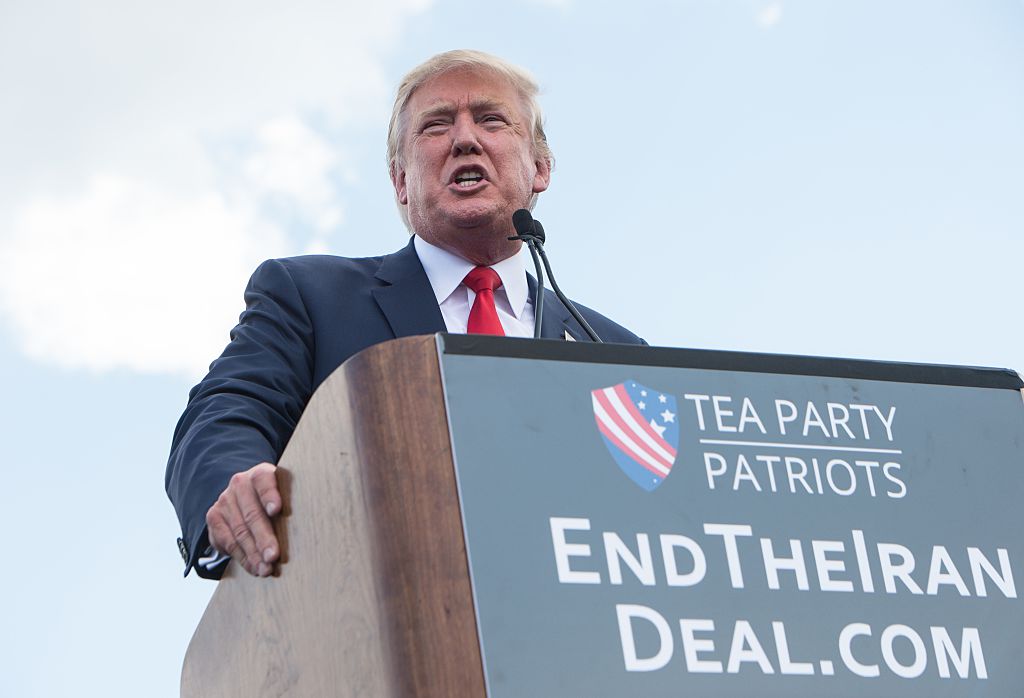An unexpected downside of Donald Trump’s presidency is the rare occasion on which he makes a wise call. Trump’s decision to withdraw from the Iran deal is wise and demonstrates a clear understanding of Tehran’s motives and tactics. The Joint Comprehensive Plan of Action (JCPOA) was Barack Obama’s signature foreign policy achievement, and it was sold as a tough but realistic settlement that would normalise relations with Iran while frustrating its desires to become a nuclear power.
The JCPOA was an attempt to translate Obama’s campaign idealism into hard policy. He won in 2008, in part, by promising a new way forward on American engagement with the world, one humbler and less hawkish than the Bush administration. As with so much of Obama’s legacy, the rhetoric was so lofty it never made its way back down to earth to be implemented. Barely had the ink on the agreement dried than Obama told the American people: ‘We have stopped the spread of nuclear weapons in this region’. Iran would cease producing highly-enriched uranium, two-thirds of its centrifuges would be placed off-limits, no new heavy-water reactors would be constructed, and the IAEA would verify the Islamic Republic was keeping its end of the bargain. ‘Every pathway to a nuclear weapon is cut off,’ Obama assured the world. In exchange, Iran would be brought in from the cold and rewarded with sanctions relief.
As non-proliferation expert Olli Heinonen said at the time: yes, Iran would dismantle 10,000 centrifuges, but it was allowed to store them at its Natanz facility, waiting to be reinstalled along with the 5,000 kept in situ. Plus, the much-touted 300 kilo limit on low-enriched uranium ignored the fact that the regime already held quantities far in excess. Then in 2016, a leaked document revealed Iran’s plans to produce and install advanced centrifuges within a decade, vastly expanding its scope for enriching uranium. The head of its nuclear programme boasted that it would take him no more than 45 days to undo the setbacks imposed by the JCPOA. Heinonen estimated that Tehran could enrich enough weapons-grade uranium for a nuclear warhead within a matter of months. No foreign policy decision better articulated the failure of Obama’s hope-and-change philosophy. Obama hoped but Iran didn’t change.
Far from destabilising the Middle East or imperilling world peace, Trump has simply returned things to the pre-2015 status quo. He shrewdly recognised the JCPOA as a flawed agreement that granted a rogue regime international legitimacy as a non-proliferation partner to the United States. Now sanctions will be reimposed, renewing pressure on Tehran at a time of economic fragility and popular discontent. There is a chance, albeit small, that things could get interesting in the near future. 1979 interesting. Trump will have to be alert to the opportunities this presents and proactive in aiding democratic forces within Iran. He should learn the lesson of the Obama years that dedicating yourself to tearing up your predecessor’s agenda is not much of a legacy of your own.
Painful though it is to admit for those of us who were and remain Never-Trumpers, more than once he has shown himself to take a more pragmatic, and frankly more impressive, approach to foreign policy than his predecessor. Where Obama embraced Iran and shunned Israel, Trump has returned US relations to their traditional balance. His ‘little rocket man’ jibes have had more impact on North Korea than all the diplomatic spiel of the last three presidents. He has sought to impose red lines, albeit in a token way, on the use of chemical weapons in Syria and has halted Obama’s attempted rapprochement with the dictatorship in Havana. Trump the disruptor seems eager to restore American foreign policy’s factory settings. His isolationist groupies may seethe but it’s the one aspect of Trump’s reign the rest of us can be grateful for.
For an alternative take, listen to Christopher de Bellaigue and Dr Roham Alvandi talk to Isabel Hardman on the end of the Iran deal in this week’s Spectator Podcast:






Comments